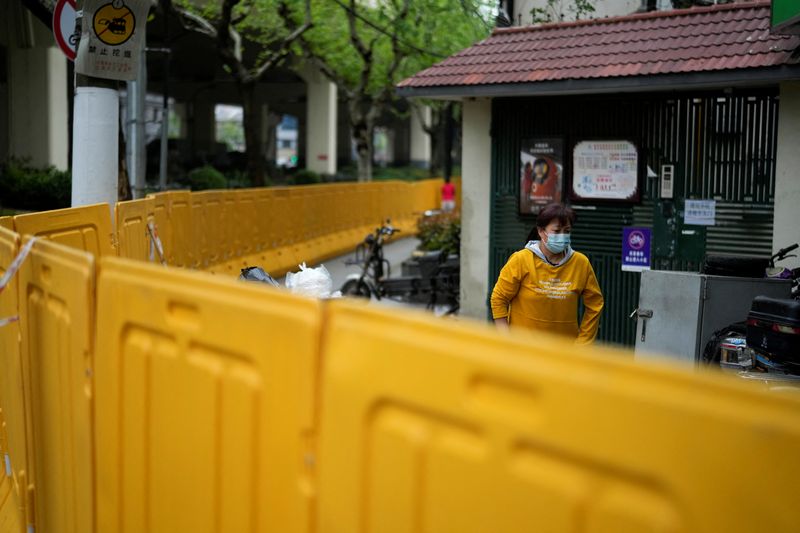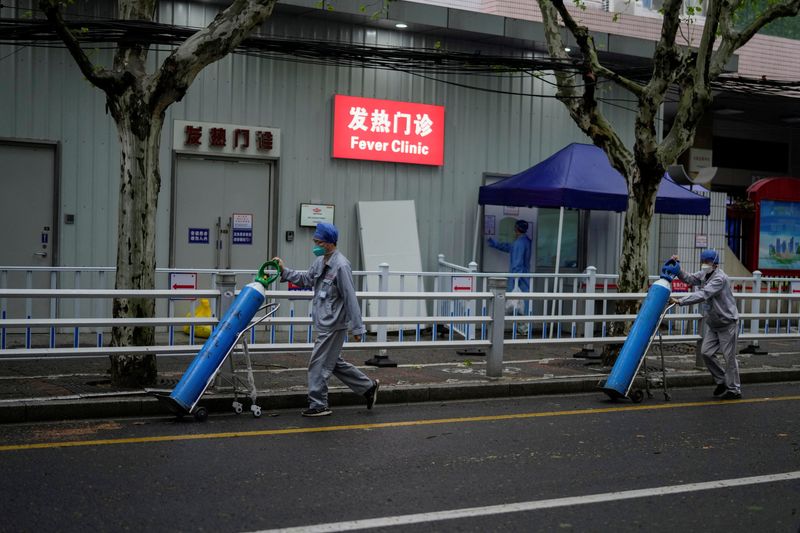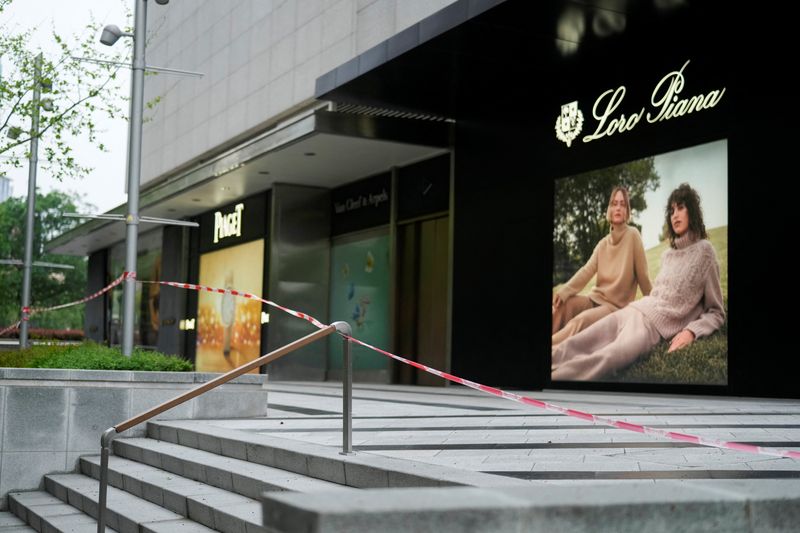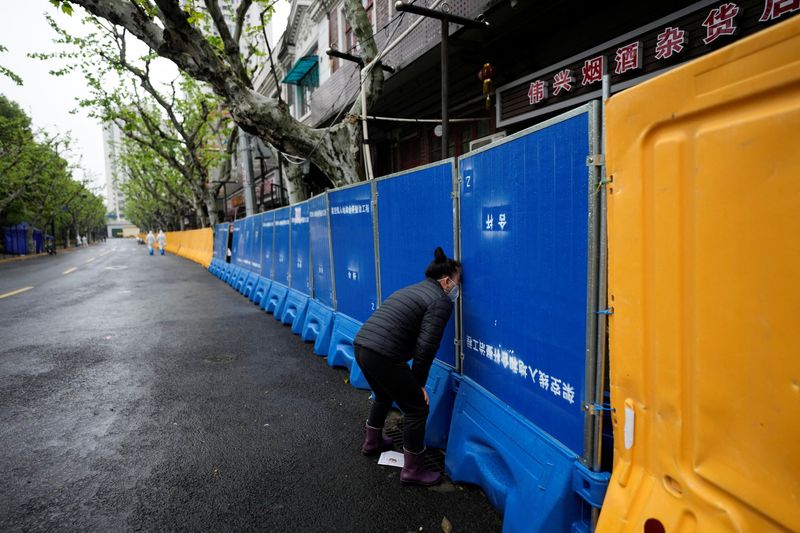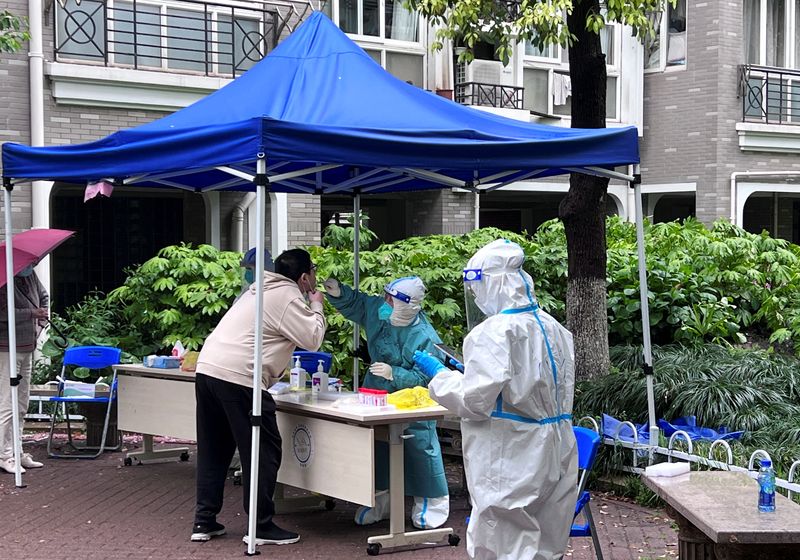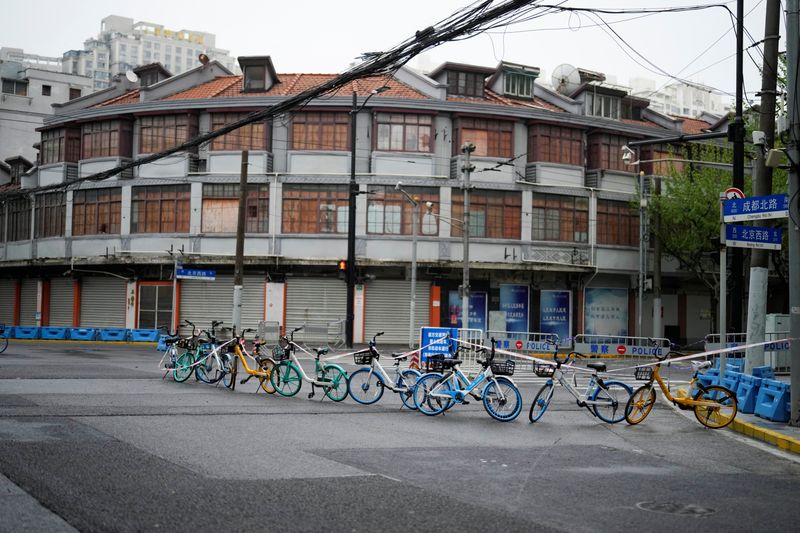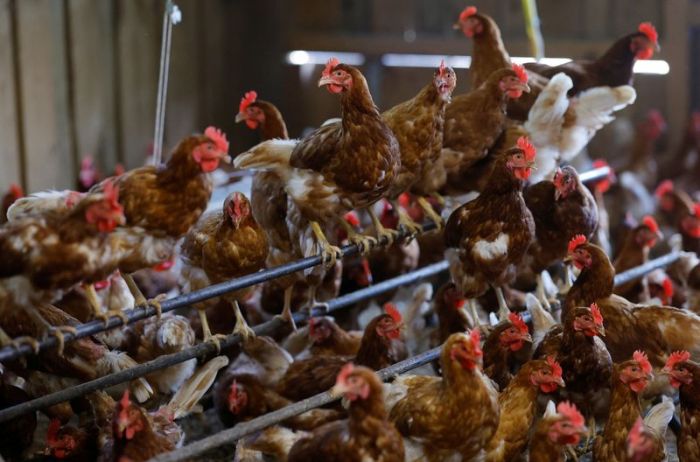SHANGHAI (Reuters) -China’s financial hub Shanghai reported over 27,000 coronavirus cases on Thursday, a new high, a day after President Xi Jinping said that the country must continue with its strict “dynamic COVID clearance” policy and pandemic control measures.
Shanghai is battling China’s worst COVID-19 outbreak since the virus first emerged in Wuhan in late 2019, with its 25 million residents remaining largely under lockdown, though restrictions were partially eased in some areas this week.
Wider curbs to stop the spread of the highly infectious Omicron variant have led to logistical and supply chain disruptions that are taking a growing economic toll, adding to expectations that China’s central bank will soon announce more stimulus measures.
An April 7 study by Gavekal Dragonomics found that 87 of China’s 100 largest cities by GDP have imposed some form of quarantine curbs.
Shanghai residents, meanwhile, have taken to social media to vent frustration over the difficulties of getting enough food and China’s policy that requires anyone testing positive, symptomatic or not, to be centrally quarantined, where many people have complained about poor conditions.
Raising hopes for a shift in policy, on Wednesday the Chinese Center for Disease Control and Prevention (CDC) published a guide on home quarantining on its social media.
The CDC’s guide – quarantine in a well-ventilated room stocked with masks, sanitizer and other gear – raised hopes that the central quarantine rule might be relaxed.
However, when asked by a social media user in an online comments section about who might be eligible for home quarantine, the CDC referred to the old rules.
Shanghai authorities also gave no hint of any change in approach during a Thursday briefing.
TESTING PATIENCE
On Wednesday, Xi said during a visit to south China’s Hainan island that China must stick to its strict “dynamic COVID clearance” policy while the global pandemic remains very serious, promising those enduring lockdowns that persistence will win out in the end.
He indicated there would be no immediate change of approach in pandemic control measures, saying that the country must stick to its approach, which has all but shut China’s borders to international travel, and not relax prevention measures.
Xi’s remarks follow several recent state media articles supporting China’s aggressive COVID strategy even as Shanghai residents chafe under restrictions.
On Thursday, an article titled “The people of Shanghai’s patience has reached its limit” by a blogger called Lady Moye, enumerating the human toll of Shanghai’s hardline anti-COVID measures including family separations, went viral on social media platform WeChat.
One comment, “Whoever deletes this article should die a sorry death,” received over half a million likes in seven hours, before the article was removed for violating regulations, according to a WeChat notice.
A video provided on Thursday to Reuters from inside one quarantine centre showed people in camp beds separated by less than an arm’s length. An occupant said more than 200 people there shared four toilets, with no showers.
On Thursday, Shanghai reported a record 2,573 symptomatic cases for the previous day, up from 1,189 a day earlier, while asymptomatic cases reached 25,146, up from 25,141.
A city official said that cases continued to rise despite the lockdown in part because of a backlog of test results and because of ongoing transmission among family members.
In the coronavirus-hit northeastern province of Jilin, authorities said they had stamped out the local spread of COVID-19 after battling to bring cases down since mid-March.
But the southern technology hub of Shenzhen appeared to be seeing a resurgence after quashing an outbreak last month. On Thursday, authorities reported 21 new infections, including 8 with symptoms and 13 without, its highest total since March 21.
(Reporting by David Kirton;Editing by Robert Birsel, Tomasz Janowski, Tony Munroe and Kim Coghill)

